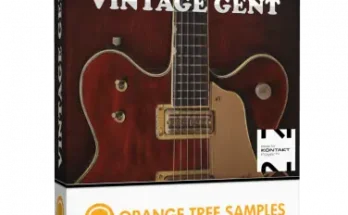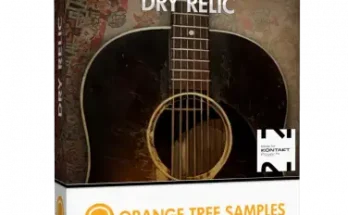10.08.2011 | KONTAKT | 2.06 GB
The Discovery Series returns for another cultural exploration, this time heading to Indonesia to delve into the world of the BALINESE GAMELAN. This instrument contains 2 GB of pristine samples from several of the essential instruments that make up Gamelan. Powered by the free KONTAKT 4 PLAYER (and also usable with KONTAKT), this instrument brings to life the rich and complex textures of Gamelan in its exquisitely-sampled classical form, yet also contains many features for tweaking and manipulating the sounds into new directions.
Created by the acclaimed sound-design house Soniccouture, the sound of the Balinese Gamelan can be heard across a wide range of genres and productions styles, from TV and film scores to electronic music compositions, and of course, classical Gamelan compositions.
Brief Background – The music of Gamelan
Often translated as “Orchestra”, Gamelan is an ensemble of instruments from Indonesia, typically Java or Bali. Ensembles can differ significantly, but would be often made up of a combination of metallophones, xylophones, drums and gongs; bamboo flutes, bowed and plucked strings, or even a vocalist. Each instrument has been built and tuned for playing in that specific ensemble, so tunings can differ considerably between Gamelans.
One of the most distinctive aspects of Balinese gamelan is that each instrument is paired, and the pairs are slightly detuned. This results in a natural beating between the instruments – perhaps the oldest chorus effect on the planet.
Culturally, the Balinese Gamelan has strong religious associations, being an integral part of many Hindu ceremonies, as well a focus for secular celebrations and festivals. Balinese Gamelan is significantly different from the quieter, more “courtly” style of its Javanese counterpart, perhaps due the differing historical religious climates of the two islands.
Gamelan music is most often characterized by its bright, metallic, percussive qualities, its distinctive and complex tuning, the rich layering of instruments, and its cyclical form. The instruments themselves are often beautifully crafted – traditional Indonesian thinking sees the gamelan as sacred, with a belief that each instrument is guided by spirits.
BALINESE GAMELAN – The Instrument
The instruments in this release were sampled from the London Symphonic Orchestra’s Semara Dana Gamelan Ensemble in exacting detail. The lengthy process ensured that the living, breathing sound lost none of its realism thanks to the painstaking recording of numerous velocity layers – a true labor of love by Soniccouture.
This instrument features three essential elements of the larger Gamelan ensemble, focussing on compact versions of the tuned instruments, the big gongs, the paired metallophones and the kettle gongs. The instruments can be categorized thus:
The Core Instruments
Responsible for the basic structure and melody, the Core instruments are made up of the Gongs, the Jegog, the Calung, and the Penyacah. This instrument includes both the upper and lower groups of these detuned pairs, with easy control over volume and panning from the kontakt interface.
The Gangsa
The Gangsa is made up of paired metallophones, including the Ugal, Pemadé, and Kantilan. These are the busy elaborate instruments that decorate the melody with fast interlocking patterns. Again, simple access via the KONTAKT interface is available for adjusting the volume and panning of these detuned pairs.
The Kettle Gongs
The third element in BALINESE GAMELAN is the Kettle gongs that include the Trompong and the Reyong. These instruments have various functions depending on the type of Gamelan in which they’re used. Sometimes they are used for melodic decoration or solo passages, other times they can be used for very quick elaborate parts, similar to the Gangsa.
Powered by KONTAKT
BALINESE GAMELAN perfectly utilizes the flexibility provided by the free KONTAKT 4 PLAYER and KONTAKT. Switch between two different pitch versions – “Original”, for classic Balinese gamelan tuning, and “Concert” for a more western-friendly tuning, enabling the easy layering of Gamelan instruments with western sounds. An optional “synth” version opens up the potential to tweak various parameters within the instruments, so as to manipulate the instruments beyond their natural sound. The Jammer function works like an arpeggiator creating rhythmic arpeggio patterns easily manipulated using the parameter controls, while also included is a function for simple control over volume and panning for the two detuned elements of the Gangsa or the Core instruments.
[toggle title=”Home page”]https://tinyurl.com/y9n9cmpr[/toggle]

http://alfalink.to/7efc340022f6ae32107f
Please REPORT in Comment Broken Links




